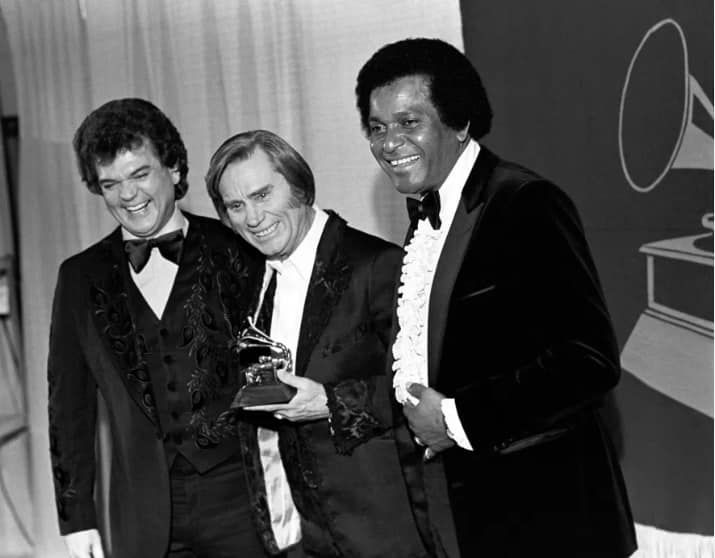When Desire Meets Restraint: A Ballad of Longing in Measured Time

In the summer of 1982, Conway Twitty—already a towering figure in country music with decades of chart-topping hits—brought an unmistakable tenderness to the airwaves with his rendition of “Slow Hand.” Released as a single from the album “Southern Comfort,” the song ascended gracefully to No. 1 on the Billboard Hot Country Singles chart, reaffirming Twitty’s mastery at translating the subtleties of human emotion into musical form. Originally recorded by The Pointer Sisters in 1981 as a sultry R&B number, Twitty’s version reimagined the track through the lens of southern masculinity and slow-burning passion, making it not just a cover but a reclamation—a transmutation of genre and gender perspective that resonated deeply with his audience.
The heart of “Slow Hand” lies in its aching patience. Where many love songs rush to declare, this one lingers on the cusp—its genius is in what it withholds. Twitty’s voice, worn like fine leather by years of storytelling, caresses each line with deliberate pacing. “I want a man with a slow hand,” he croons—flipping the lyric’s original female point-of-view into one spoken by a male narrator describing a woman’s yearning. In doing so, Twitty does not merely transpose the lyrics; he inhabits them, embodying a kind of romantic empathy rarely found in male-led country ballads of the time.
Lyrically, “Slow Hand” is not overtly complex, but its emotional architecture is meticulously constructed. It is a plea for intimacy without haste—a sensual resistance to the urgency that so often defines romantic pursuit. The song’s title itself becomes a metaphor for presence: hands that move not with nervous eagerness but with reverence and intention. In this way, it suggests that love—true love—is not about conquest but about attentiveness. The physicality described here is tender, yes, but it is also spiritual—a communion that transcends mere touch.
Twitty’s arrangement strips away some of the urban polish of The Pointer Sisters’ version and replaces it with pedal steel sighs and restrained rhythm guitars that feel like midnight rain tapping softly on windowsills. This sonic landscape—lush yet unhurried—echoes the song’s central thesis: that there is something deeply erotic about waiting, about letting love unfold in its own time.
Culturally, “Slow Hand” arrived at a moment when country music was negotiating its relationship with pop sensibility. Twitty had long been at the forefront of this conversation; his early career as a rockabilly singer gave him an ease with crossover appeal. But rather than dilute country music’s emotional gravitas, songs like “Slow Hand” reaffirmed its ability to convey complexity through simplicity. In adopting an R&B ballad and transforming it into a country classic without sacrificing its core sentiment, Twitty expanded the genre’s emotional vocabulary.
Ultimately, “Slow Hand” endures because it speaks to an elemental truth: that love at its most profound requires patience, presence, and an understanding that time—when shared with intention—becomes its own kind of intimacy.